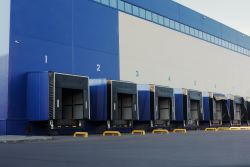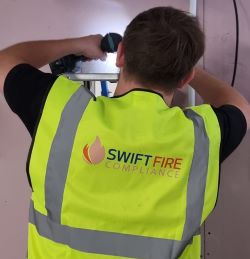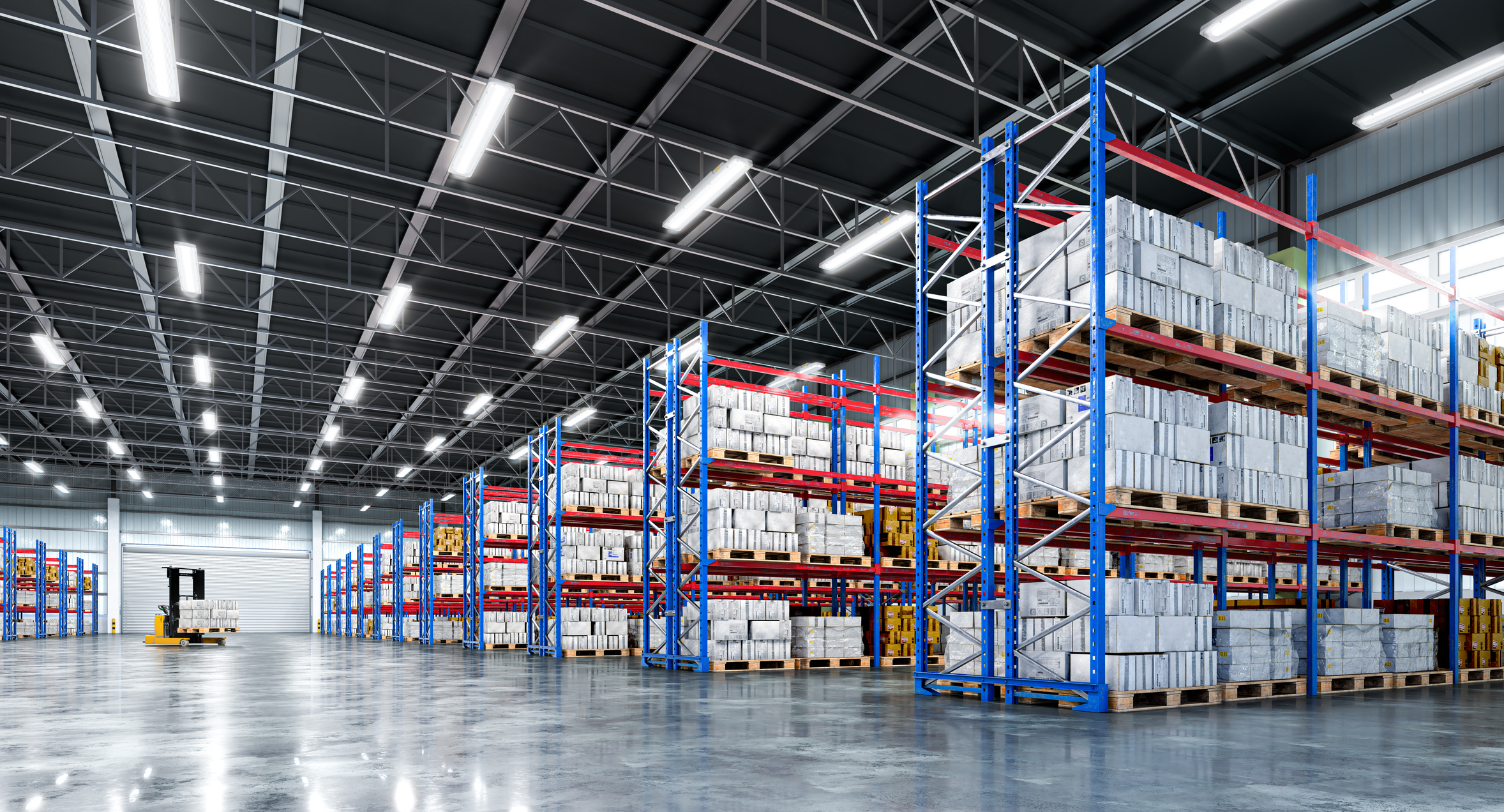Warehouses and distribution centres: ventilation cleaning, fire damper maintenance, and Legionella control
In the fast-paced world of logistics and manufacturing, UK warehouses and distribution centres operate around the clock to keep goods moving efficiently. But while efficiency is key, indoor air quality, fire safety, and water hygiene are often overlooked – until problems arise.

These facilities are often huge, so air, water and fire safety systems often occupy a vast area. Water systems can be underused during factory shutdowns, creating a potential for Legionella proliferation. Similarly, ventilation systems, which need regular cleaning and which may contain fire dampers that need testing and maintaining, can span vast expanses.
Specialist ventilation cleaning, fire damper maintenance, and Legionella control are not just good practice; they’re vital components of legal compliance under UK health and safety law. Failing to maintain these systems can pose serious health risks, increase fire hazards, and lead to fines, and even legal action against the Responsible Person.
Why ventilation cleaning matters in warehouses
Warehouses are large, active spaces where dust, debris, and airborne contaminants can quickly build up in ducts, vents, and air handling systems. Over time, this can reduce air quality, increase energy use, and contribute to fire risks.
Managing the risk of poor ventilation
Uncleaned ventilation ductwork can adversely affect indoor air quality; causing headaches, fatigue, and respiratory irritation. Routine ventilation cleaning, in compliance with BESA’s TR19® Air specification helps to:
- Maintain healthy air circulation
- Support temperature and humidity control
- Ensure compliance with TR19® Air and BS EN 15780
- Create a safer, cleaner workplace environment
Warehouses should have their air handling and ventilation systems inspected according to their TR19 classification – usually between 1 and 4 years.
Fire damper maintenance: a crucial part of fire safety
Fire dampers are life-saving, normally steel louvres, installed within ductwork at the point where it passes through an internal fire-resistant wall, to prevent the spread of fire and smoke through ventilation systems. In the event of a fire, they automatically close, sealing off airways to delay the spread of smoke and flames.
Fire dampers should be function tested and inspected by a competent person at least every 12 months to ensure that they will operate correctly in an emergency. In dusty or high-traffic warehouse environments, more frequent testing may be needed. Regular testing protects both employees and company assets; and is vital for safe evacuation routes and fire compartmentation.

It also helps to maintain compliance, which is a legal duty for the Responsible Person under the Regulatory Reform (Fire Safety) Order 2005 and BS 9999:2017.
Fire damper inspections typically involve:
- Visual and physical testing of damper operation
- Cleaning to remove dust, grease, and obstructions
- Checking and lubricating springs, blades, and fusible links
- Recording results and any remedial actions in your fire logbook
Integrating fire damper maintenance into your ventilation cleaning schedule is both efficient and cost-effective – ensuring your systems are compliant, clean, and safe.
Legionella control in water systems
Warehouses and distribution centres, particularly those with under-used water systems can be at risk from Legionella outbreaks. Some facilities are almost fully automated, requiring even less regular use of the water system and more potential for the presence of legionella bacteria. Any facility with stored or static water, from cooling systems to staff showers and taps, can become a breeding ground if not properly managed.

Legionella thrives in water temperatures between 20°C and 45°C, and inhaling contaminated water droplets can cause Legionnaires’ disease, a potentially fatal form of pneumonia.
What are the legal requirements?
Under the Health and Safety at Work Act 1974, COSHH Regulations 2002, and ACoP L8 (Legionnaires’ Disease: The Control of Legionella Bacteria in Water Systems), employers and landlords are legally required to:
- Carry out risk assessments to identify potential sources.
- Implement control measures such as temperature monitoring and flushing routines.
- Clean and disinfect water systems to remove scale, biofilm, and bacterial growth.
- Keep accurate records of maintenance and water testing.
Even if water use is minimal in the warehouse or distribution centre, neglecting Legionella management can lead to compliance breaches and significant health risks.
Staying compliant on ventilation, fire safety, and water hygiene maintenance
Warehouse facilities managers should have compliance with air, fire, and water hygiene regulations high on their agenda. It should feature strongly in any comprehensive maintenance plan.
Best practices include:
- TR19® Air inspections and cleaning of ductwork and air systems according to their use and classification.
- Scheduled fire damper testing and maintenance in accordance with BS:9999 at least every 12 months.
- Routine Legionella risk assessments and water hygiene monitoring in accordance with L8.
- Maintaining full records and compliance logs for audits and insurance.
- Choosing a competent and professional expert cleaning contractor to perform specialist air, fire and water cleaning, testing and maintenance.
Maintaining these vital compliances helps to ensure your warehouse remains safe, efficient, and legally compliant – protecting both your workforce and your business reputation.
The Bottom Line

Clean air, safe fire systems, and hygienic water are essential for every workplace – and warehouses and distribution centres are no exception. By prioritising ventilation cleaning, fire damper maintenance, and Legionella control, you can safeguard staff wellbeing, meet legal obligations, and prevent costly downtime.
Need Expert Support?
Our qualified technicians specialise in TR19® Air ventilation cleaning, fire damper inspection, testing and maintenance, as well as Legionella risk management for industrial and warehouse environments across the UK.
Contact us today to arrange a site survey or request a free compliance consultation.




